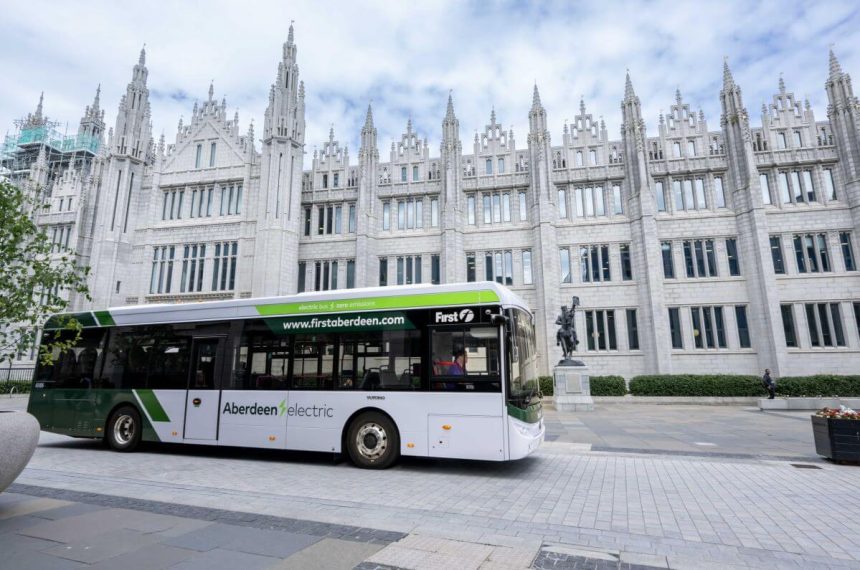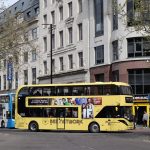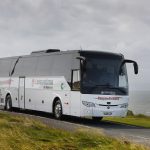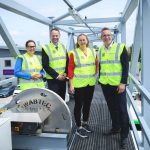While the government delays on setting an end date for the sale of new non-zero-emission coaches and buses, it is now already approaching five years since First Bus committed to having a fully emission-free bus fleet by 2035.
Part of plans to operate a net-zero business by 2050, this bold declaration of intent accompanied a pledge not to buy any more diesel buses after 2022.
Progress towards that lofty ambition continues apace, with the operator set to have more than 900 zero-emission buses out of its current fleet of just over 4,500 by the completion of its latest electrification projects.
Several milestones have been achieved on the journey towards those targets. These include the full electrification of three of its depots — York, Leicester and one in Norwich.
Another project that will no doubt be crucial to the success is its partnerships with Equipmake and Wrightbus to repower diesel buses.
It is also offering its EV chargers to other businesses and the public to help reduce emissions outside the business.
Overall, it says it has invested over £250 million across the UK — almost double the amount of profit it made during the same period — in decarbonisation projects.
Tasked with driving the process is Faizan Ahmad, First Bus Decarbonisation Programme Director, who was appointed in June 2023 to report to Isabel McAllister, Chief Sustainability Officer.
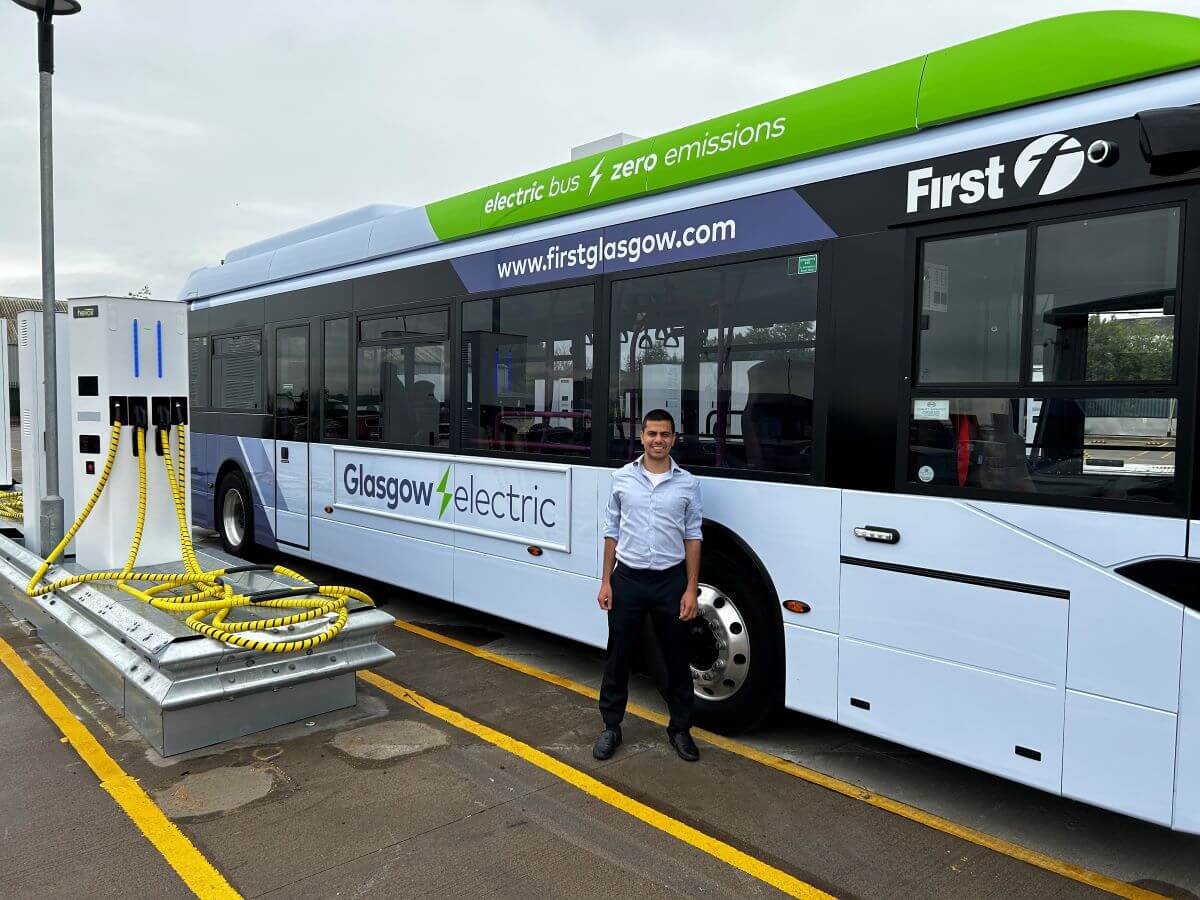
With First Bus around one third of the way along the route towards 2035, Faizan, whose previous roles include that of Senior EV Charging Strategy Manager and Sustainability Projects Manager for Amazon, is optimistic about the pace of progress.
“We’re at 650 zero-emission vehicles already and, based on confirmed projects already in the pipeline, we should be over 900 by the end of 2025. I would say we’re definitely walking the walk along with talking the talk.”
In numerical terms, the “walk” will need to speed up to a run by comparison, but the steep uphill trajectory of EV bus registrations will, of course, continue.
“As you can imagine, given all the changes in the market and the technology, we’re comfortable that we’re very much on track.
It might not be linear,” says Faizan, who adds: “Outside of London, we have the most zero-emission vehicles of all the major bus operators.”
It was important for First Bus to publicly state its ambition, according to Faizan.
“I think it’s an ambitious but very much achievable goal and it provides not just First Group and First Bus but everyone across the industry a North Star to work towards.”
That is particularly useful in the absence of a roadmap from the government.
A government consultation in 2022 referenced possible dates for the ending of new sales for non-zero-emission buses ranging from 2025 to 2032.
Now, even the latter of those dates is appearing fanciful. Further, after the previous government in September 2023 set back by five years to 2035 the corresponding date for cars, the silence with regards to PSV from Westminster has been notable.
Faizan says on this: “I don’t think any business leaders would ever say more uncertainty from government helps. More certainty in policy, perhaps in terms of future funding opportunities or any other support it is providing, would be much appreciated.”
The power of repowers
Repowers will be crucial to First Bus achieving its target, the business believes.
“Whenever we’re doing our forecasts, repowers are a critical element of how we anticipate reaching that 2035 goal,” says Faizan.
To that end, the business has recently made a series of significant announcements. It has placed an order for 32 diesel-to-electric conversions with Wrightbus’s new NewPower business and these are entering service in Aberdeen, Leeds, Leicester, Norwich and Portsmouth.
In 2022, it similarly partnered with Equipmake to upgrade 12 already-electric buses for York. Also in the last few months has come the news regarding parent company First Group’s £1 million investment into repower specialist KleanDrive.
The government’s Zero Emission Bus Regional Areas (ZEBRA) scheme has done much in the quest to decarbonise the sector, with the second and most recent round funding 955 buses at a cost to the Treasury of £143 million.
However, the argument has repeatedly been made that more support should be given for repowers, the case for this including that the latter is more environmentally sustainable.
Faizan agrees: “Every time there is a new iteration of ZEBRA funding, there is always the question of whether repowers are going to be eligible. Our view would be it should be.
“In some respects, there is already a programme to make sure that any repowers are certified such that they can receive BSOG (Bus Service Operators Grant). That is to be encouraged, but I wouldn’t necessarily isolate repowers in particular just for BSOG.”
He argues that a restructure in the way funding is allocated should be considered.
I would say we’re definitely walking the walk along with talking the talk – Faizan Ahmad
“When there’s grant funding up front, there is a case that it is just having the impact of inflating OEM prices, so to speak.
“So, if instead there was a different model where it was more operations-based potentially, very similar to BSOG, I think that might help support the market a bit further.”
Repowers typically cost around half that of a new double-decker, but the financial considerations go far beyond that, he points out. “We’re not anticipating a full 15-20-year life [for repowers],” he says.
“We have to wait and see but it’s at least 10. It’s cheaper, but then you’re not going to get quite as much life. It’s not the answer to everything, but it has a place to play in the overall picture.”
The skills challenge
Such a target naturally comes with great challenges, which First Bus is learning from as the pace picks up.
The first mentioned is the training of sufficient engineers. However, the operator highlights its partnership with Reaseheath College in Cheshire in forming what was claimed to be the UK’s first dedicated coach and bus engineering facility.
That opened in 2021 and has led to hundreds of apprentices joining the industry.
“Driver training is quite easy as they find driving EVs a breeze compared to the diesels,” he says.
“But, in terms of our engineers, it’s an entirely new vehicle, new technology to come up to speed with. So we’re quite proud of our partnership with Reaseheath College.”
Faizan says “a minority” of the current engineers are reluctant to make the switch from older technologies but suggests that opportunities remain for these for the time being in servicing the dwindling diesel fleet.
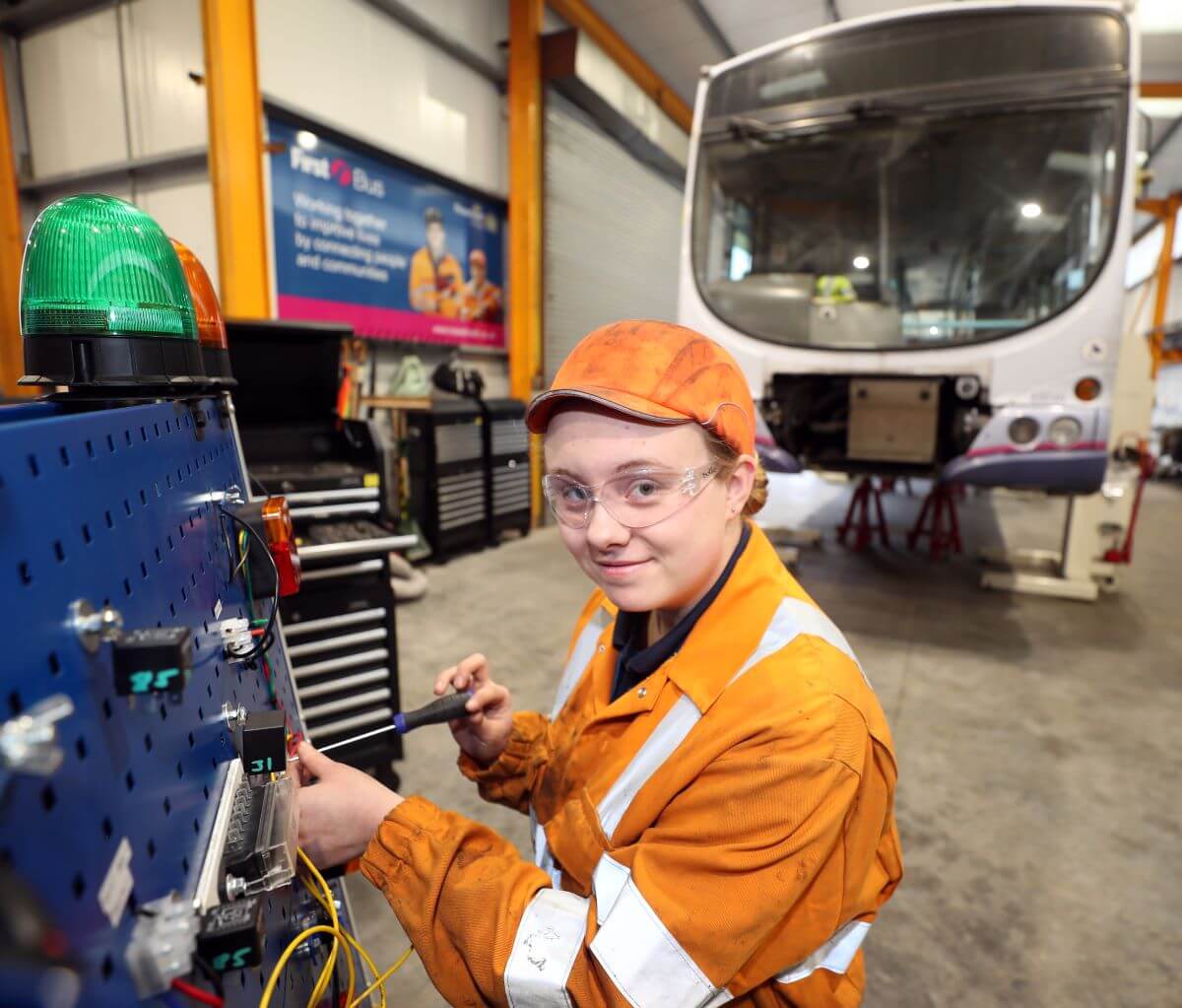
The case for the youngest generation being more willing to work on battery electric than diesel has been put forward and Faizan adds that the forward-looking nature of newer technology is another factor.
He says: “Whether it’s driver recruitment or engineering recruitment, what I hear is, if you’re going into a facility and you can see tonnes and tonnes of construction work everywhere, you get the impression this is a place which is being invested in and you want to be part of it because you know it’s being set up for the long term.”
Combating power issues
While shiny new electric buses gain much of the press attention, it is easy to forget about the massive amount of work going on behind the scenes.
“People focus on the bus, as they should, but the bus really comes at the end,” Faizan says.
“There’s a whole suite of things from a technology and infrastructure perspective which need to be put in place.
“The key thing is the power upgrades. That’s definitely a much longer and slower process, we found, in terms of engaging with the DNOs (Distribution Network Operators).”
First Bus has learned that engaging early in this regard has been crucial. “Even for 10-15 of the sites where we don’t actively have electrification plans, we’ve already gone ahead with the power upgrade process,” he says.
When there’s grant funding up front, there is a case that it is just having the impact of inflating OEM prices – Faizan Ahmad
In 2021, First Bus put the world’s first double-decker hydrogen buses on the road, with the 25-strong fleet in Aberdeen representing a small portion of the operator’s zero-emission offering.
Supply of green hydrogen is likely to continue to present an obstacle towards take-up of this technology in the bus sector, although a similar — if more shallow issue — exists for battery electric.
With lack of power supply in the electricity grid set to be a problem for some time to come, First Bus says it is keen to do its bit by working “smartly”.
“What we’ve experienced is it’s not about bigger and more power upgrades; it’s about doing it smartly and, from our perspective, we aim to be a good citizen and we have models to figure out exactly how much power we need and we try to load-manage when we can.”
Among the initiatives is having timed connection agreements whereby power is only taken during the night when it’s needed.
“We’re happy to be leading the way with some of the arrangements which hopefully others can pick up across the rest of the industry.”
A part of that is the operator opening up its Summercourt depot in Cornwall for public charging, while its other nine depots where EV charging is in place are open to drivers of DPD, Openreach and Centrica as part of commercial arrangements with those businesses.
What about coach?
Although the 2035 target applies only to buses, what is being learned in that sector can be applied to coach, says Faizan.
First Bus has recently partnered with Flixbus, while it also has a coaching arm in Aberdeen and FirstGroup is expanding its acquisitions of coach businesses.
“With coaches it’s very early days,” Faizan says.
“It’s a different market entirely from buses but there are some similarities and, I think, over the course of the next couple of years, we’re going to have to see what it looks like for electrifying coaches.
“Where I think there are definitely some synergies and opportunities is going to be on the charging infrastructure side.
“We’ve learned a lot in that which we can definitely take forward as we look to get to zero-emission coaches in due course.”


















